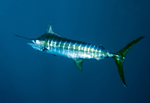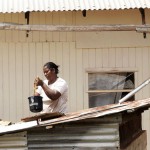Western Biologists Study Tuna Collapse as Their Countries’ Fleets Pillage World Coasts | Pesca de atún requiere sacrificios a corto plazo
Julio Godoy, IPS, Tierramérica | Enrique Gili, IPS | Commentary by Dady Chery, Haiti Chery. The world’s tuna populations, and particularly bluefin tuna, are being overfished to extinction. Despite numerous violations for overfishing, vessels fly flags of convenience, change their names, swap crews and continue to operate. (English | Spanish)
Continue reading →






